On November 17, the 2024 special “Leaderboard Challenge” of the 19th “Challenge Cup” National College Student Extracurricular Academic and Technological Works Competition concluded in Hangzhou. Participants from Guizhou Province won four top prizes and two first prizes in the national-level competition, with Guizhou University securing three top prizes and two first prizes.
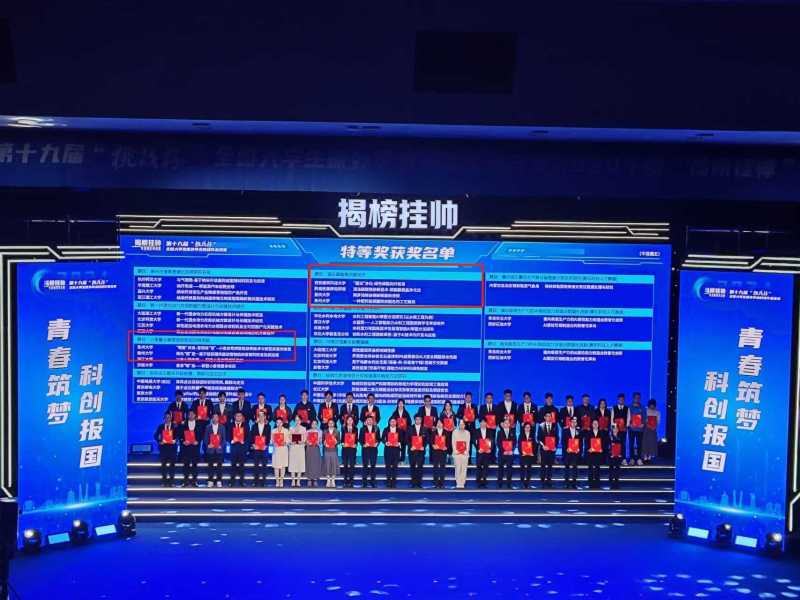
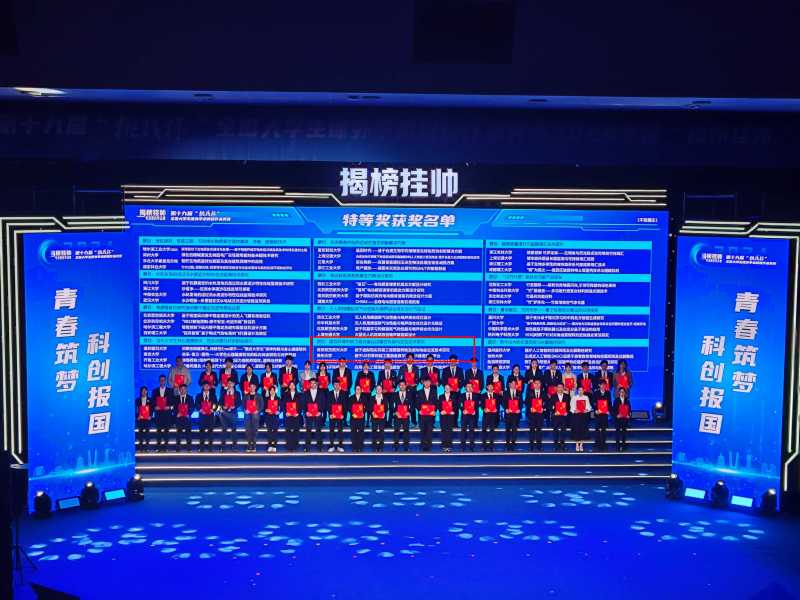
This year’s special “Leaderboard Challenge”, themed “You Set the Challenge, We Take It On”, championed the principle that “heroes can emerge from anywhere; those capable shall rise to the challenge”. Guided by the principles of addressing major national needs, leveraging competitive and collaborative mechanisms, and focusing on solving real-world problems, the competition targeted critical technological challenges and significant societal issues. Following a model of “government and enterprises setting tasks, competitive bidding, and project signing”, the competition progressed through stages of task solicitation, announcement, bidding, evaluation, and awarding. Governments and enterprises proposed topics, while the organizing committee extended invitations to universities and society at large, encouraging teams of university students and young scientific talents to rise to the challenge.
The competition featured two tracks—one for university students and another for young scientific talents—and attracted over 27,000 participants nationwide. Ultimately, 1,950 projects from more than 410 universities and enterprises made it to the finals, with 12 projects from Guizhou University shortlisted.
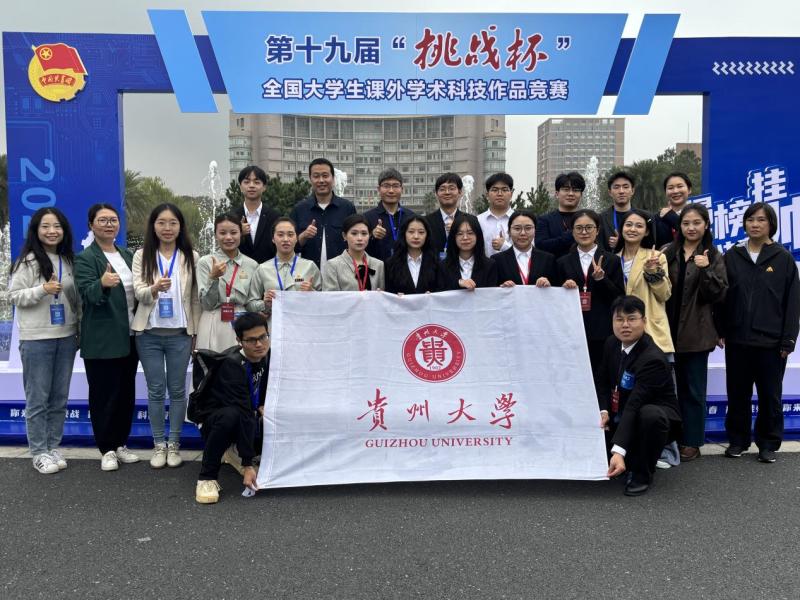
Guizhou University consistently places great emphasis on fostering innovation and entrepreneurship. The university leadership convened multiple meetings to advance related work. On October 28, a dedicated meeting was held to prepare for the national-level competition. Thanks to the coordinated efforts of the university’s Youth League Committee, Office of Academic Affairs, Science and Technology Park, and various schools, GZU teams achieved outstanding results. The Fine Chemical Research and Development Center, the Key Laboratory of Modern Manufacturing Technology under the Ministry of Education, and the College of Chemistry and Chemical Engineering each won a top prize. The College of Liquor and Food Engineering and the College of Philosophy earned first prizes, while the College of Electrical Engineering, the College of Mining, and Yangming College secured third prizes.
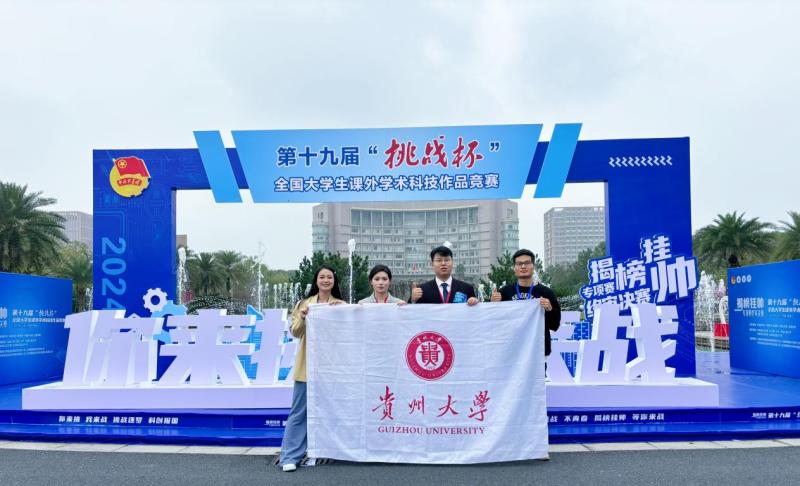
One standout project addressed Fusarium Head Blight (FHB), a severe threat to wheat, the world’s second-largest staple crop. Current treatments for FHB face challenges such as limited variety, low efficacy, and resistance, which pose significant risks to China’s food security. The Fine Chemical Research and Development Center proposed an innovative solution in their project, “Targeting Wheat Diseases with Smart Fungicides: Intelligent Diagnosis and Novel Fungicide Development for Fusarium Head Blight”. The project leveraged amide-based molecules with exceptional antifungal properties and utilized a proprietary agroinformatics platform to optimize molecular structures and identify biological targets. By integrating big data-driven precision pesticide application techniques, the team achieved effective and environmentally friendly control of FHB.
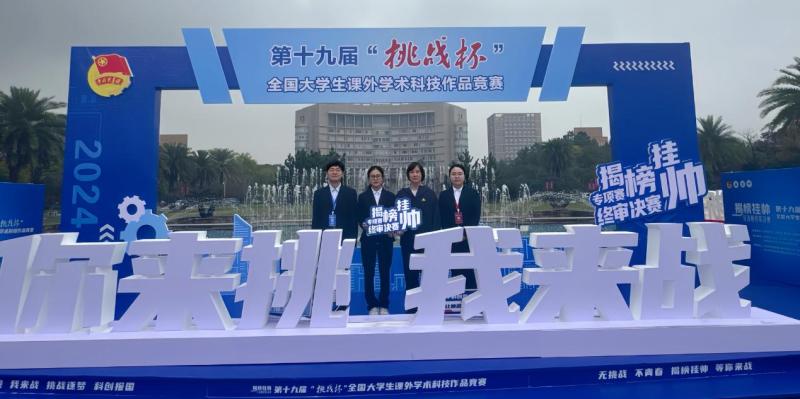
Another award-winning project by the College of Chemical Engineering responded to a challenge from Guizhou Phosphate & Chemical (Group) Co., Ltd. Their project, “A Purification and Decolorization Process for Fertilizer-Grade Phosphoric Acid”, targeted mid-to-low-grade phosphate ore in Guizhou. Using ozone oxidation coupled with staged precipitation, the team reduced the MER value of fertilizer-grade phosphoric acid from 6.03% to 1.68%, decreased chromaticity from 0.31 to 0.18, and achieved an arsenic removal rate of over 60%. The resulting precipitate could also be reutilized, exceeding the requirements set by Guizhou Phosphate & Chemical (Group).
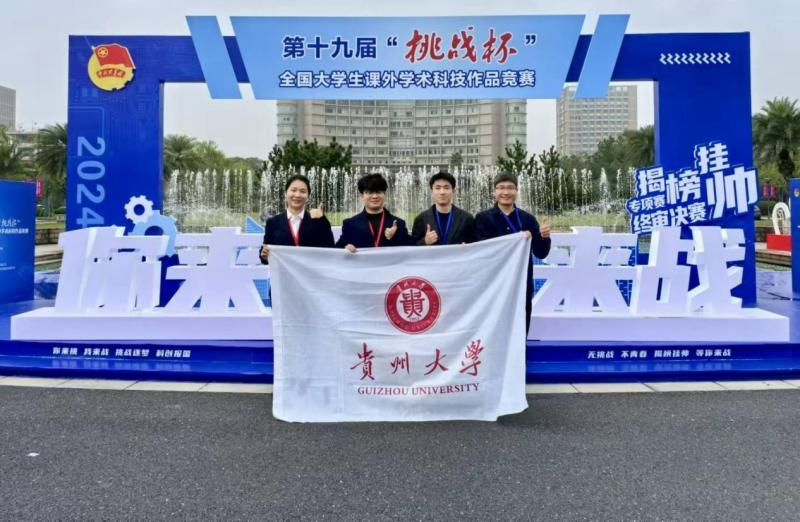
In the field of nuclear engineering, the Key Laboratory of Modern Manufacturing Technology under the Ministry of Education addressed the challenges of accessibility and repairability design and validation arising from complex environmental and spatial conditions. Their project, “A Universal Digital Twin XR Development Platform for Nuclear Engineering Equipment Based on UE Engine”, provided a comprehensive solution. The team developed a user-friendly platform to enhance the efficiency of design and validation processes for nuclear engineering equipment.
Editors: Pang Aizhong; He Xuan
Chief Editor: Li Xufeng
Senior Editor: Ding Long
Translator: Jia Haibo